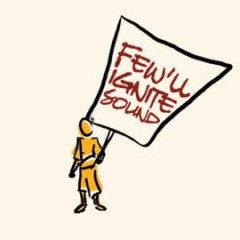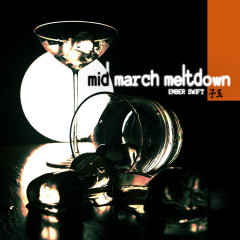Cougars & Goatees
When I first met Guo Jian, I had already noticed him. I was in a music venue in Beijing called “Mao Live House” in June of 2007. I had just performed with my American friend Traci’s (now ex-)boyfriend’s band. I played three songs, one of which was backed up by her boyfriend’s band members after only one really casual rehearsal the week before. Having been in China for over two months without my band, I was happy to be backed up with drums and bass, but it was a bit of a train wreck. The song was “Ten Pin” and the band played it like it was a boulder tumbling down a cliff, getting faster and louder and more destructive until the final chord. I breathed a sigh of relief when I got to play the other two by myself.
After the performance, I hung out with my friend Traci and her friends. I noticed a beautiful, tall, lean Chinese woman on the other side of the lobby dressed in Thai Fisherman’s pants and a blue floral jacket, standing straight-backed with her long dreadlocks tied neatly at the nape of her neck. In her profile I could see the hint of a dimple. Perfect skin. She was stunning. It wasn’t until she turned and glanced over at the group of us that I saw his goatee.
If you just break down the differences in physical traits, Han Chinese men (Han being the ethnic majority in China) are slighter than Western men, on average, and are often hairless with the exception of wispy goatees or light moustaches. Chinese men also quite often have the fine facial features we associate with femininity like high cheekbones, full lips and smooth skin.
He wasn’t the first man that I had mistakenly thought was a woman since coming to China. I’ve always been attracted to the sexiness of androgyny and he fit right into that zone as I watched him from across the room. Still, I thought nothing more of it. For one, he looked like he could have been perhaps twenty, tops. I watched him for those few moments with a voyeuristic eye and nothing more. I was thirty-two.
Traci introduced us shortly thereafter, but I didn’t catch his name before he had moved on to talk to others. At that time, Chinese names sometimes took me several tries to remember, so I nicknamed him “Dimple Boy.” I winked at my friend Traci when I told her that I thought that Dimple Boy was pretty cute. She winked back. We joked about the possibility that we were acting like “cougars” and I felt giddy with the strange liberty that I felt in China to just wink and stare and not obsess about gender.
But, to obsess for just a second here (!), men express their gender differently across cultures, yet his expression of gender was different yet again to the other Chinese boys—more flamboyant and colourful, confident, careless—so different in fact that I distinctly remember wondering if he was gay and liking the thought of that. I felt a connection with him. Maybe we were both two queers floating in a straight sea?
He had arrived late and missed my performance so just before leaving I invited him to my final show in Beijing and handed him the simple flyer I had printed up. He smiled down at it. That was the extent of our interaction. My Chinese was pitiful and his English was non-existent. I left with some other friends. He never came to my last show the following week. I briefly noticed his absence but thought nothing more of it. I wonder why significant moments are so often felt to be fleeting, laughable, and utterly insignificant?
A whole year after we had developed our relationship, he told me that he remembered meeting me perfectly. He described the clothing I had been wearing that night. He remembers watching me leave and described the friends I left with. He said he knew he would meet me again. When I asked him why he hadn’t come to the show I had invited him to, he just shrugged. “I don’t really go to shows that often. I’m sick of the venues. I don’t even know why I went to Mao that night. I just turned up there. Maybe I went to meet you?” At this, he raised his eyebrows mysteriously and playfully. It was also his way of punctuating the end of the conversation.
He didn’t have a lot of energy for analyzing the past.








